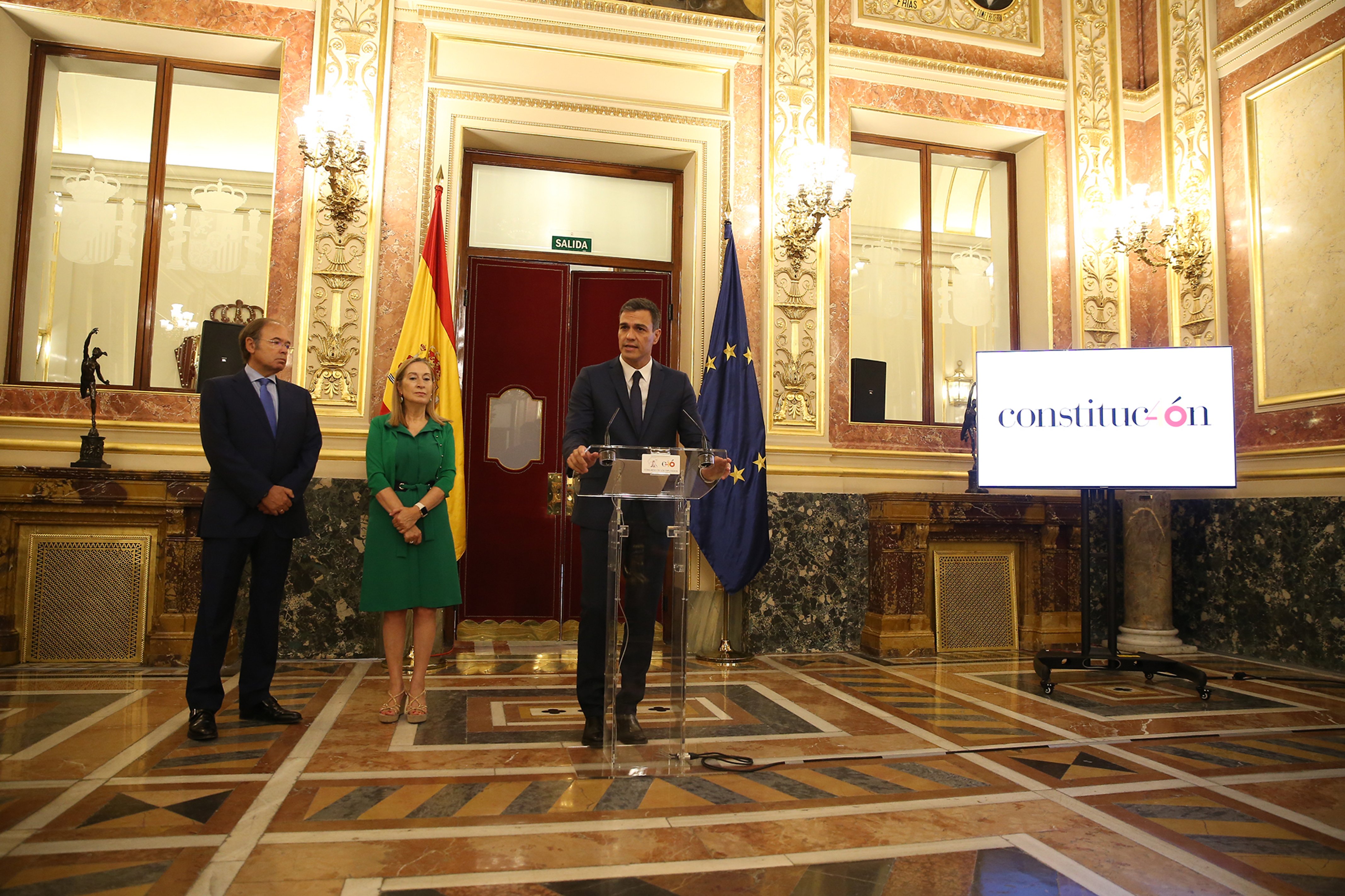Spanish prime minister Pedro Sánchez has said this Thursday that "the Spanish Constitution allows for options for new agreements to be explored" and for reaching "new and great consensuses" as long as "we're able to negotiate, to understand each other based on generosity and to shun selfishness". This message was accompanied by a call to the "spirit of dialogue" as well as the need to comply with the Constitution. It "is honoured by obeying it and making others obey it", he said, because it's "a framework which has allowed us to understand each other based on plurality, diversity, [which] has favoured social harmony and has drawn together and supported our country in territorial terms". Sánchez was speaking during the presentation at the Spanish Congress of the ceremonies for the 40th anniversary of the Constitution later this year. Alongside him were the speakers of the Congress and Senate, Ana Pastor and Pío García Escudero.
The prime minister highlighted that the Constitution established Spain as a "full democracy" built on "the power of words and agreements", an exercise in "generosity which we can continue learning from today".
He said that the Constitution laid the foundation for the welfare state and for self-government in a country "which knows itself to be profoundly diverse and plural". "Democracy in Spain is solidly rooted in its institutions and its citizens," he said.
Making no reference to his proposal of constitutional reform, Sánchez highlighted the text's "validity" and said that "we learnt from the Constitution that never again could a political project have the vocation of dividing, of splitting society into two halves condemned to suffocate each other".

